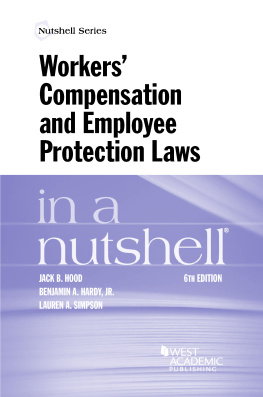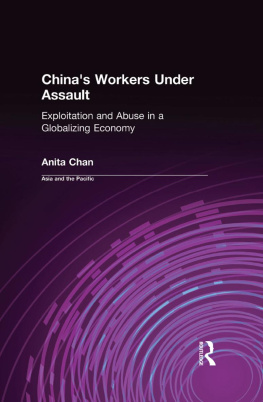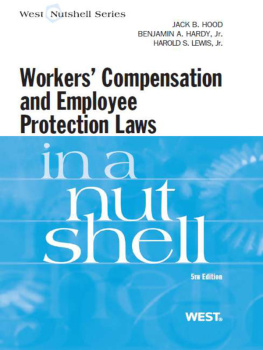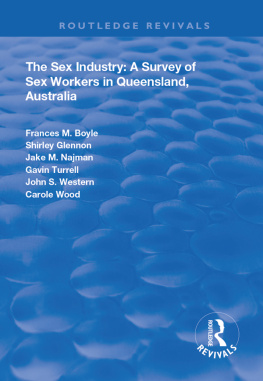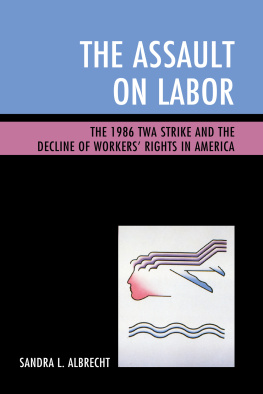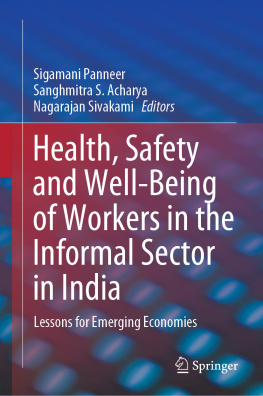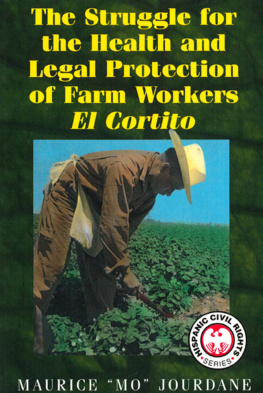Copyright 2011 by Princeton University Press
Published by Princeton University Press, 41 William Street, Princeton, New Jersey 08540
In the United Kingdom: Princeton University Press, 6 Oxford Street, Woodstock, Oxfordshire
OX20 1TW
press.princeton.edu
Jacket art: Sex Workers Protesting at the Bangladesh Deputy High Commission Based in Kolkata.
Suvendu Chatterjee/ Drik India/ Majority World.
All Rights Reserved
Library of Congress Cataloging-in-Publication Data
Kotiswaran, Prabha.
Dangerous sex, invisible labor : sex work and the law in India / Prabha Kotiswaran.
p. cm.
Includes bibliographical references and index.
ISBN 978-0-691-14250-0 (cloth : alk. paper) ISBN 978-0-691-14251-7 (pbk. : alk. paper)
1. ProstitutionIndia. 2. ProstitutionEconomic aspectsIndia. I. Title.
KNS4224.K68 2011
306.740954dc22 2010052069
British Library Cataloging-in-Publication Data is available
This book has been composed in Minion with Myriad
Printed on acid-free paper.
Printed in the United States of America
10 9 8 7 6 5 4 3 2 1
For my parents, Bama and SekharACKNOWLEDGMENTS
There are few tasks as rewarding as thanking the many friends, supporters, and advisers who play a crucial role in the writing of ones first book. I express my tremendous gratitude to all of them for their acts big and small. This project took root in a sense when I was a student at the National Law School of India, Bangalore, and a group of us law students undertook the study of prostitution for a community-based law reform competition on workers rights for Indian law schools. Memories of our awkward visits to Bangalore beer bars and attempts to strike up conversations past dusk with sex workers on St. Marks Road remain vivid in my mind. No classroom could deliver your thoroughly provocative instruction on the dynamics of law and social change, so thank you.
The project was then fostered during my doctoral studies at Harvard. I would like to extend my gratitude and thanks to the Harvard crits who have for years indulged my research on sex work and have left an indelible imprint on what critical and progressive legal scholarship might look like. I cannot express my gratitude enough to Duncan Kennedy for his incredible generosity; my intellectual debts to him are several, and this book is all the better for his incessant interrogation of my thoughts and ideas. My thanks go to Martha Minow for her wisdom, intellectual rigor, and constant encouragement. My thanks also to Janet Halley for her keen intellectual insights, active mentoring, and the incredible intellectual community that she has nurtured at Harvard over the years. I thank Lucie White for her steady encouragement and constant validation of my intellectual project. I am very grateful to Upendra Baxi for his guidance and support over many years. I have learned a lot from his generosity of spirit, sense of humor, and ability to seamlessly integrate his academic and activist work. Rajeswari Sunder Rajan has been a source of constant inspirationfor her brilliance, grace, and way of being in this world. I also thank her for being such an excellent reviewer for this book and for her insightful comments, which enhanced the strength and clarity of the books arguments. Thanks also to many of the friends who have engaged with my work and offered their friendship and support in many waysPaulo Barrozo, Jane Fair Bestor, Aeyal Gross, Isabel Jaramillo, Julieta Lemaitre, Fernanda Nicola, Balakrishnan Rajagopal, Kerry Rittich, Kristin Sandvik, Alvaro Santos, Hani Sayed, Hila Shamir, and Philomila Tsoukala. Many thanks to my current colleagues at the School of Oriental and African Studies, University of London, including Diamond Ashiagbor, Fareda Banda, Alex Fischer, Nick Foster, Gina Heathcote, Martin Lau, Scott Newton, Michael Palmer, Amanda Perry- Kessaris, Carol Tan, and Lynn Welchman, who helped me navigate the joys and burdens of teaching while supporting my research. My immense gratitude goes to Michael Likosky, who has been an incredible mentor and a wonderful sounding board for all sorts of questions on the academic life.
Ian Malcolm earlier at Princeton University Press was a wonderfully supportive editor; I am so grateful for his faith in the book and his helpful advice at every stage of the making of this book. My thanks to Ben Tate for seeing this book through publication. My thanks also to Beth Clevenger and Cathy Slovensky for carefully shepherding the book through its editorial phase. The comments of the anonymous reviewer of the book manuscript were very helpful; thank you for your patient reading. I am thankful for the many sources of funding that made this book possible, including the Byse Fellowship, Human Rights Program Fellowship, and Reginald F. Lewis International Summer Internship Award, all at Harvard Law School, and the Hauser Center Fellowship for Doctoral Studies in the Nonprofit Sector at the John F. Kennedy School of Government at Harvard. Valuable time for writing the book was made available through a research leave award from the UK Arts and Humanities Research Council (award grant number AH/G005702/1). Research for this book also benefited enormously from presentation at conferences at Harvard Law School, supported by the Program on Law and Social Thought, the Up Against Family Law Exceptionalism conferences at Harvard and Toronto, the trafficking roundtables hosted by the Watson Institute for International Studies at Brown, the Washington College of Law at American University, and, at Radcliffe, the workshops on gender, law, and sexuality hosted by the AHRC Centre for Law, Gender and Sexuality, based at Kent, Keele, and Westminster universities in the UK, and the annual conferences of the Law and Society Association. My thanks to Arundhati Katju, who meticulously located several governmental and NGO reports on sex work and trafficking in what is now a quickly burgeoning field. I am also grateful to Paris Woods, Edward Keenan, and Tim Yu for being resourceful research assistants. Finally, I thank the American Bar Foundation for permitting me to use parts of my article, Born Unto Brothels from Law & Social Inquiry.
For all the rounds of rosagollas and many cups of sweet tea at the Durbar Mahila Samanwaya Committee and Kolkata brothels alike, where sex workers celebrated and shared their life stories with me, I am grateful. My thanks to the numerous peer educators and sex workers in Kolkata and Tirupati who patiently accompanied me on field visits and took such good care of me, always engaging with my queries with great enthusiasm and chiding me in good measure when I was off the mark. Mitra Routh, in particular, always made Kolkata feel like a home away from home. Pradip Baxis astute observations on sex workers and much else in Kolkata were enlightening. In Tirupati, Meera and Sreeram were extraordinary hosts, brimming with incisive comments on the power dynamics that animated their daily struggles with organizing sex workers and defending their rights. I am also very grateful to Dr. Jayasree, Maitreya, and Dr. Smarajit Jana for their insights into the Indian sex workers movement. In my activist friends commitment to the cause of sex workers rights, I found strength, direction, and guidance, and a reminder of how we might lend morality to our professional lives. When I have returned to my field sites to meet sex workers I interviewed earlier, a few have asked what I did with my research. My response that I was writing a book sounded underwhelming, even to me. This unanswered question, I hope, will keep me alert to the politics and ethics of academic knowledge production. Last, but not least, I cannot thank my parents enough for encouraging me to pursue a career in law at a time when legal education in India was thought to house rejects from competitive engineering and medical school entrance exams. Over the years, Ashwin Belur has been a relentless supporter of my work; I have not known a more generous and selfless friend. Bhuvan and Ankita have undoubtedly been the most enjoyable companions on this journey and hopefully will be partners in many more. Finally, thanks to the several women who in taking care of my children so well performed the invisible labor that makes the work of women like me possible.



